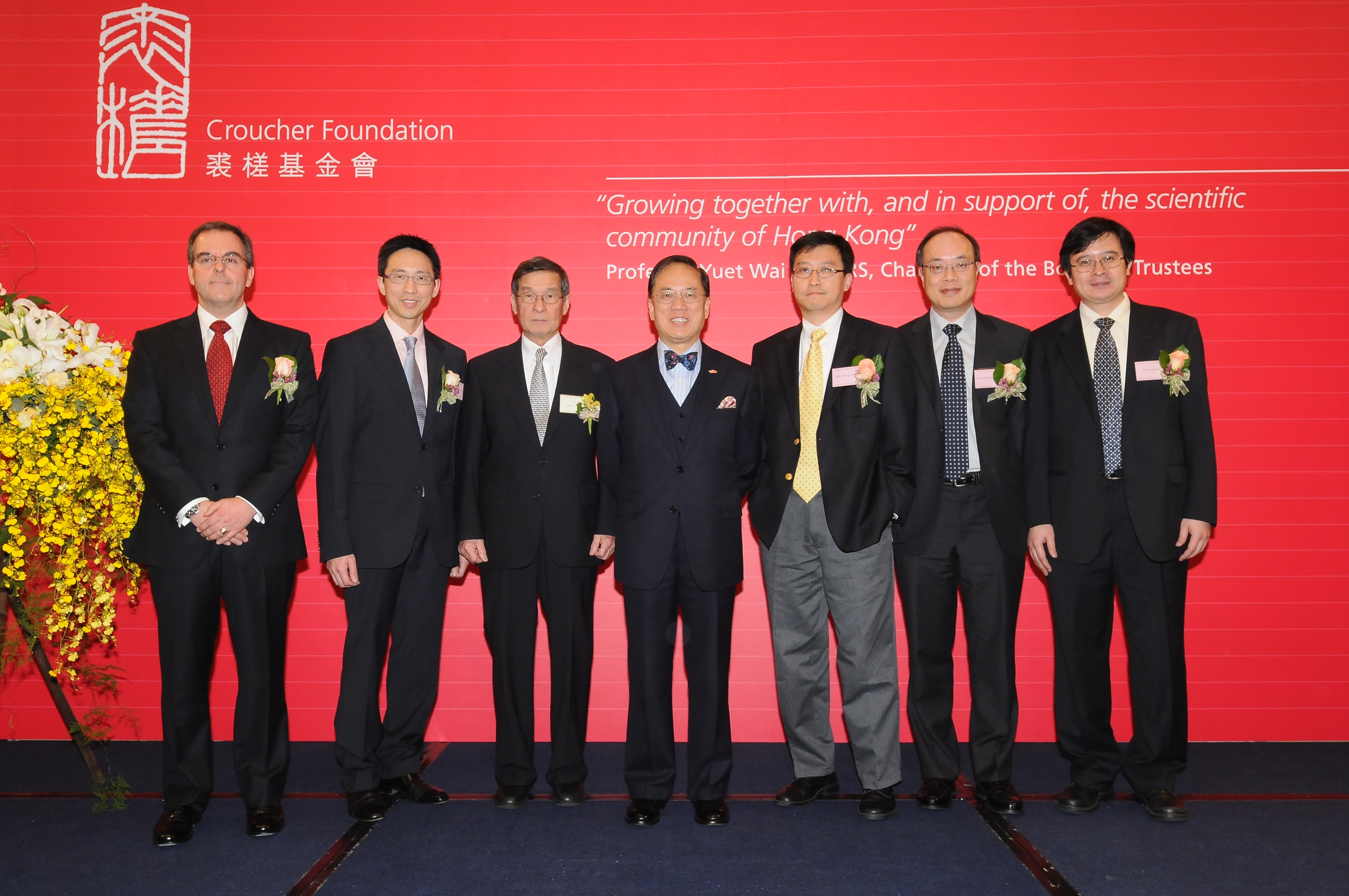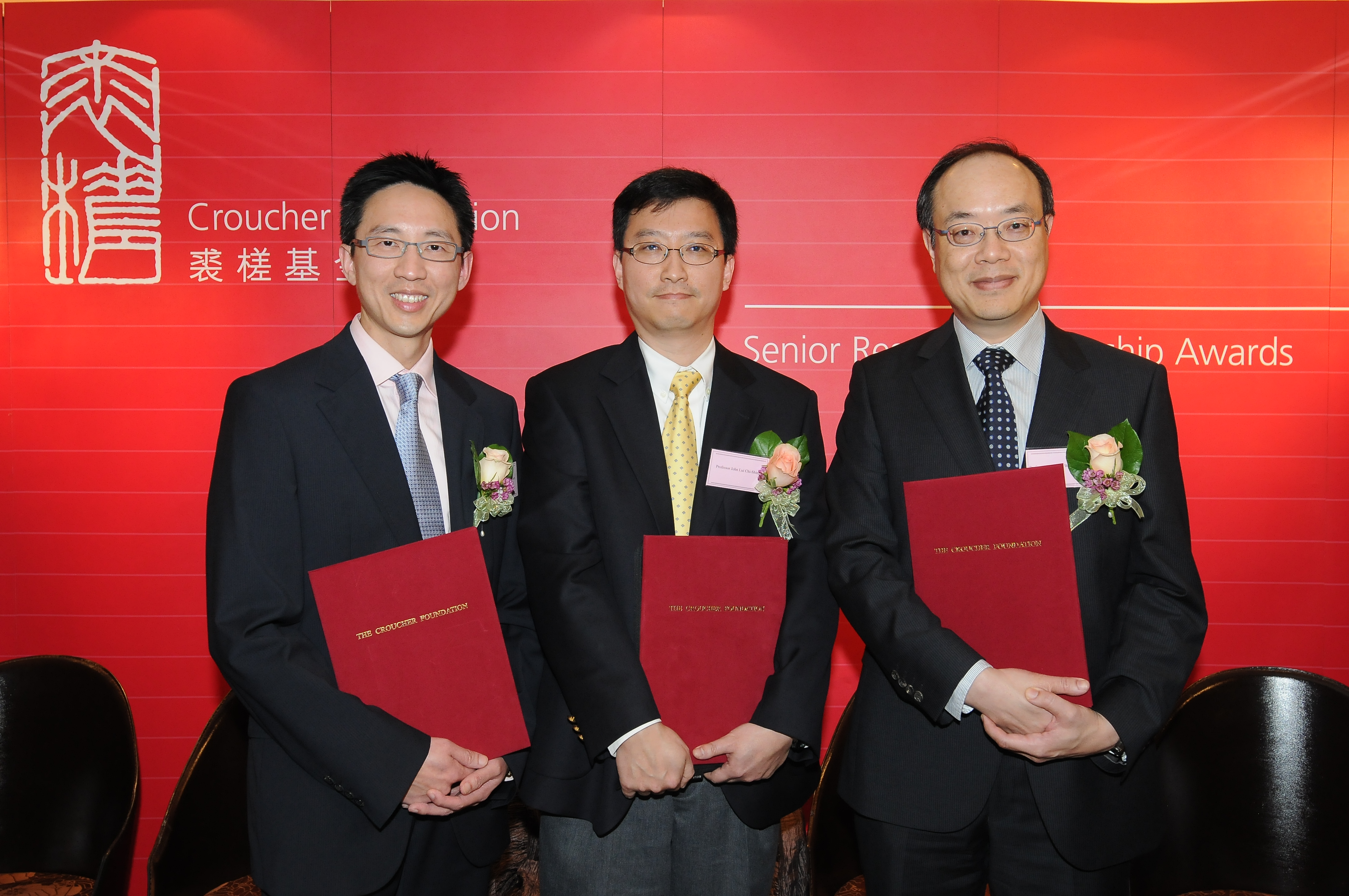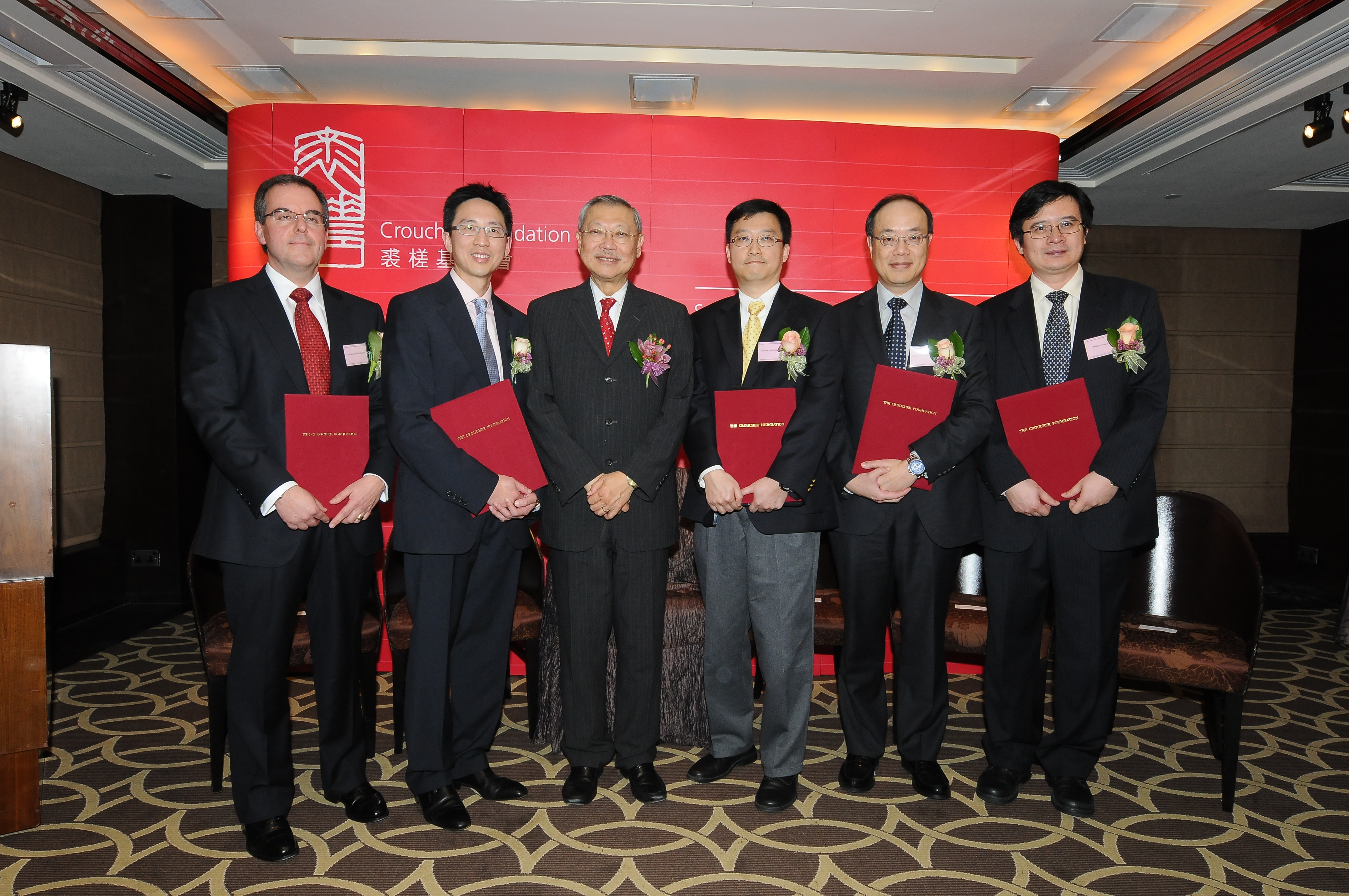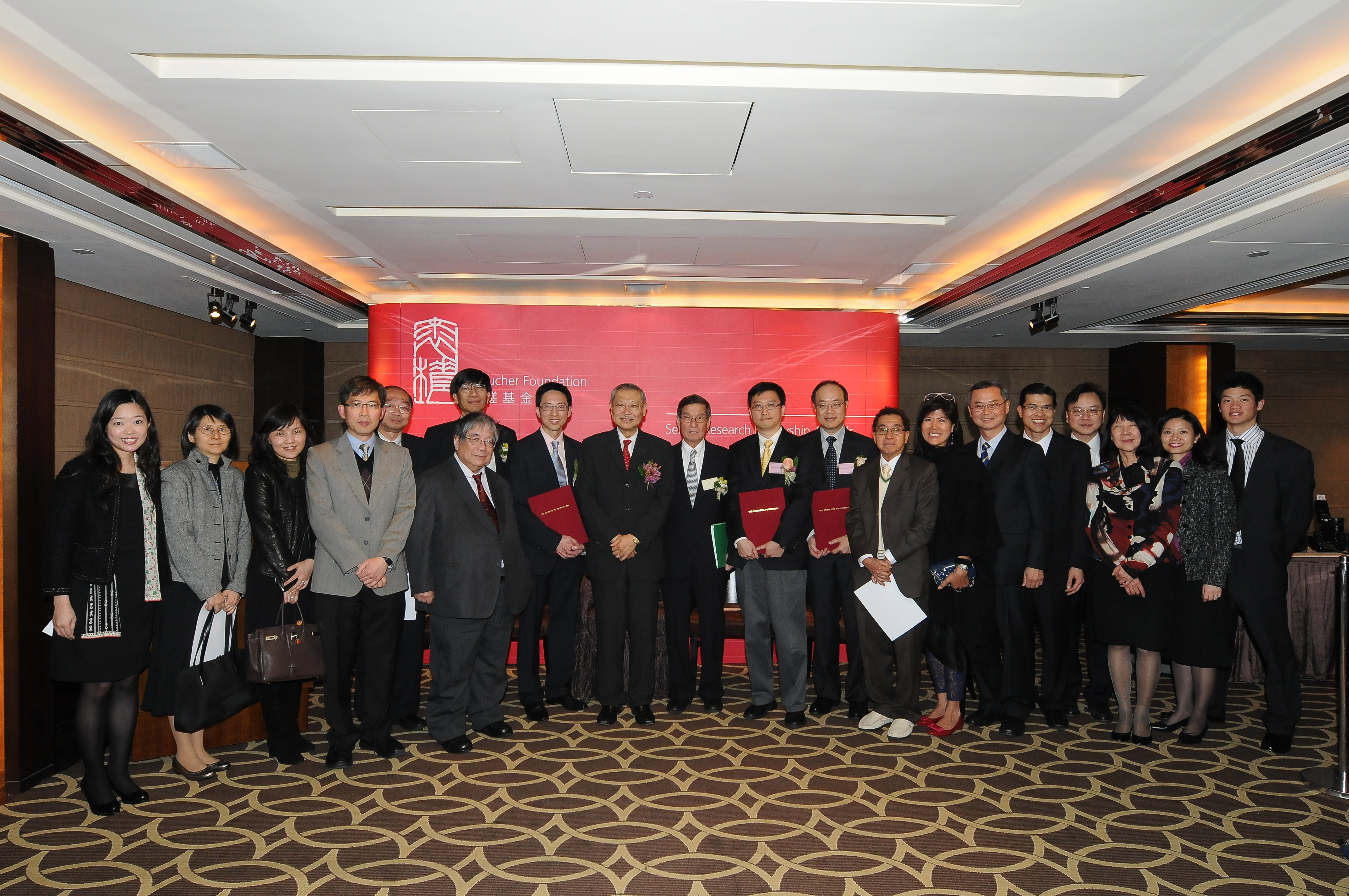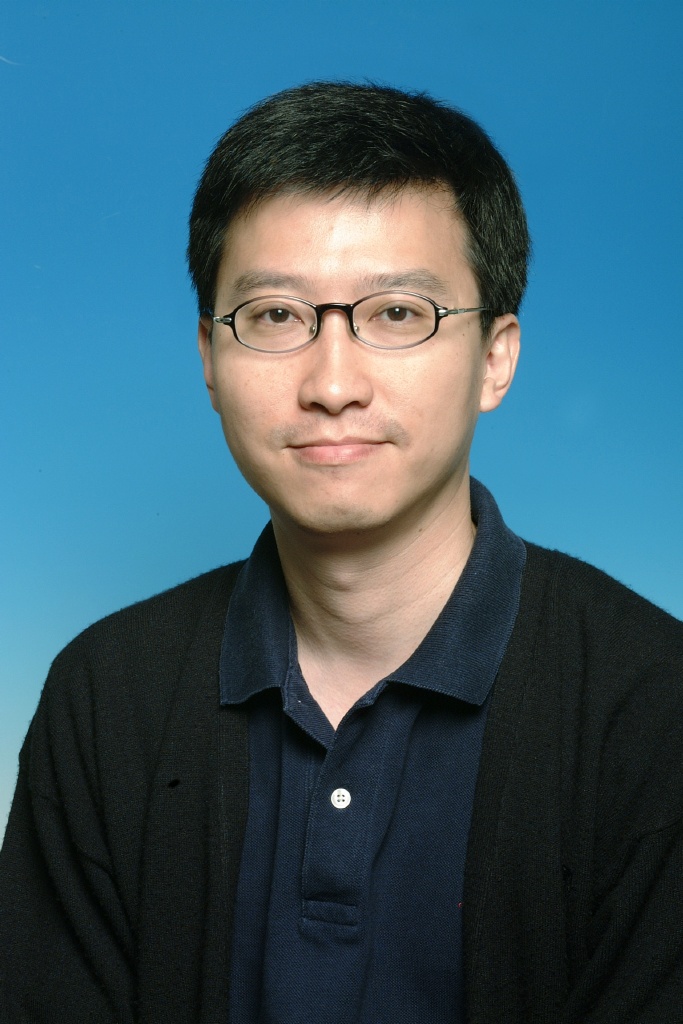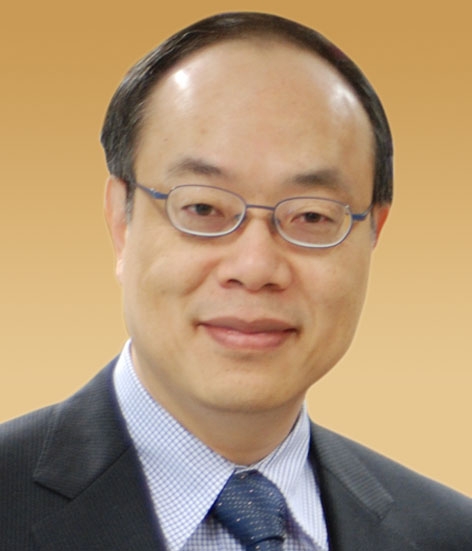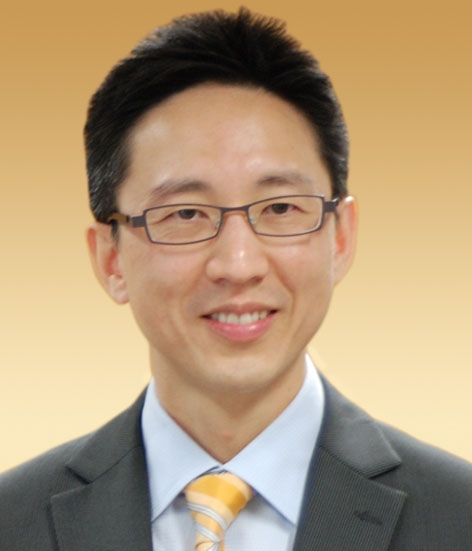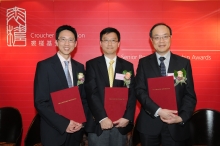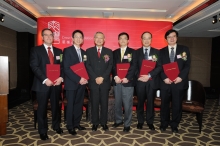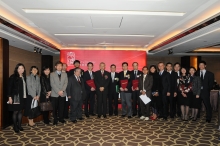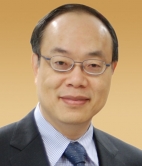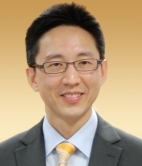CUHK
News Centre
Three CUHK Scholars Named Croucher Senior Research Fellow 2011-12
Three top research academics from The Chinese University of Hong Kong (CUHK) were presented the prestigious Senior Research Fellowship of The Croucher Foundation today (24 March), in recognition of their outstanding scientific achievements in the international scientific community. Prof. John LUI Chi-shing of the Department of Computer Science and Engineering received the Senior Research Fellowship, while Prof. Henry CHAN Lik-yuen and Prof. Lawrence WONG Ka-sing of the Department of Medicine and Therapeutics were awarded the Senior Medical Research Fellowship. The awards were presented by Mr. Michael SUEN Ming-yeung, Secretary for Education of the HKSAR Government.
The Croucher Senior Research Fellowships scheme was first introduced in the 1997-98 academic year. The value of the 2011 award is HK$800,000 for the Senior Research Fellowship and HK$900,000 for the Senior Medical Research Fellowship. It is awarded to local academics who have excelled in scientific research work as judged by leading international scientists invited to provide confidential reviews of candidates nominated in a competitive exercise. Funds are awarded to the universities of the fellowship recipients, enabling the university to recruit replacement teachers to take over the award winner’s duties for the period of the fellowship. This enables the awardees to devote more time and effort to research work. Each winner will also receive a grant of HK$60,000 towards research expenses.
A total of 21 scholars from CUHK have been awarded the Croucher Senior Research Fellowship since its inception. They are: Prof. Henry WONG Nai-ching, Prof. WU Chi, Prof. XIE Zuowei, Prof. CHOW Hak-fun and Prof. Tony SHING Kung-ming of Chemistry, Prof. Raymond YEUNG Wai-ho of Information Engineering, Prof. ZHOU Xunyu of Systems Engineering and Engineering Management, Prof. WEI Juncheng of Mathematics, Prof. XIA Keqing and Prof. Emily CHING Shuk-chi of Physics, Prof. HUANG Jie of Mechanical and Automation Engineering, Prof. CHAN Hsiao-chang of Biomedical Sciences, Prof. Michael LYU Rung-tsong and Prof. John LUI Chi-shing of Computer Science and Engineering, and Prof. JIANG Liwen of Life Sciences. Among them, six scholars have been awarded the Croucher Senior Medical Research Fellowship. They are: Prof. Joseph SUNG Jao-yiu, Vice-Chancellor, Prof. Jean WOO, Prof. Francis CHAN Ka-leung, Prof. Henry CHAN Lik-yuen and Prof. Lawrence WONG Ka-sing of Medicine and Therapeutics, and Prof. Dennis LO Yuk-ming of Chemical Pathology.
Prof. John LUI Chi-shing is currently chairman of the Department of Computer Science and Engineering at CUHK. He received his PhD in computer science from the University of California, Los Angeles. After graduation, he joined IBM San Jose Research Laboratory (presently named Almaden Research Center), participated in research and development on file systems and parallel I/O architectures. His research interests are in the design and analysis of computer and communication systems. He is a fellow of the Association for Computing Machinery (ACM) and the Institute of Electrical and Electronics Engineers (IEEE). He enjoys teaching and learning, as well as various forms of leisure reading.
Prof. Lawrence WONG Ka-sing is Mok Hing Yiu Professor of Medicine; chief of the Division of Neurology and director of the S.H. Ho Cardiovascular Disease & Stroke Center, CUHK. Professor Wong obtained his MB BS degree in 1985 and Doctor of Medicine degree in 1999, both from the University of New South Wales in Sydney. He joined the Department of Medicine of CUHK as a lecturer in 1993 and was promoted to chair professor in 2006. He was conferred fellowships by the Hong Kong College of Physicians in 1994, the Hong Kong Academy of Medicine in 1995, and the Royal College of Physicians of London in 2000.
Professor Wong’s major research interests lie in the epidemiology, neuroimaging and treatment of stroke. He is the first to confirm that intracranial atherosclerosis (narrowing of vessel around the brain) was the most common vascular lesion among Asian stroke patients, and was found in 1/3 to half of Chinese stroke patients. He was the first to establish the high possibility of having another stroke among patients with diffuse intracranial atherosclerosis. He performed the world’s first community-based study in rural China and found that the prevalence of asymptomatic intracranial atherosclerosis was 7-8% among normal subjects. Recently, Professor Wong has been studying more aggressive treatment of intracranial atherosclerosis by using stenting and blood flow augmentation to the brain.
Professor Wong’s pioneering work has won many international recognition and awards, including the Bruce S. Schoenberg International Award and Lecture in Neuroepidemiology from the American Academy of Neurology in 2001 and a gold medal for the Chapter of Neurology Lecture from the Singapore College of Physicians in 2005.
He is the Secretary of the World Stroke Organization, Geneva, and also associate editor for Asia of the journal STROKE and the journal Neurology Asia. He is a visiting professor of Fudan University, Sichuan University, Zhongshan University and Peking Union Medical College. He has authored more than 280 original research papers in indexed journals and has given more than 300 invited lectures all over the world.
Prof. Henry CHAN Lik-yuen is a professor in the Department of Medicine and Therapeutics of CUHK; director of the Cheng Suen Man Shook Centre for Hepatitis Research; director of the Centre for Liver Health; and a council member of ASIAHEP Hong Kong. He was former president of the Hong Kong Association for the Study of Liver Diseases from 2005 to 2009. He is also a guest professor in Southern Medical University, Guangzhou and Guangxi Medical University. Professor Chan graduated from CUHK and obtained his degree in Doctor of Medicine with commendation in 2001. He was conferred fellowships by the Hong Kong College of Physicians and the Hong Kong Academy of Medicine in 2000, the Royal College of Physicians of Edinburgh in 2003 and the Royal College of Physicians of London in 2006.
Professor Chan is a world renowned expert in liver diseases. He is among the first to describe the use of peginterferon treatment in chronic hepatitis B, and to demonstrate the two major C subgenotypes of HBV (Cs and Ce) and the association of higher cancer risk for subgenotype Ce HBV. He defined the clinical characteristics and natural progression of non-alcoholic fatty liver disease (NAFLD) in Chinese, and was invited as a member of the Asia-Pacific Working Party for NAFLD and the National Consensus Group for Fatty Liver Disease.
Professor Chan studied extensively on non-invasive markers of liver fibrosis. He is an opinion leader in the use of transient elastography as a non-invasive measure of liver fibrosis. One of his recent papers has provided guidance on the interpretation of transient elastography in chronic hepatitis B patients, and has become one of the highly cited papers in the Institute for Scientific Information (ISI) in the last 10 years.
Professor Chan serves as an editorial board member in seven journals and an expert reviewer in 30 journals. He has organized numerous international academic conferences and was the scientific committee chairman of Asian Pacific Association for the Study of the Liver (APASL) 2009, the international director of postgraduate course of APASL 2011, and the scientific advisor of APASL 2010 and 2011.
Professor Chan’s remarkable achievements in research have been widely recognized. He has published over 200 articles in international journals on hepatitis and liver cancer research. He was awarded the ASAIHL-Scopus Young Scientist Award by the Association of Southeast Asian Institutions of Higher Learning (ASAIHL) in 2008; Ten Outstanding Young Persons in Hong Kong in 2008 for his academic achievement and contribution to the community; Emerging Leader Lectureship Award by Asia Pacific Digestive Week in 2010; and Excellent Research Award (Clinical Studies) by the Food and Health Bureau of Hong Kong in 2010. His work on the identification of viral mutants associated with liver cancer has been patented in China and internationally.
Chief Executive Donald Tsang Yam-kuen honours this year’s Croucher Senior Research Fellows in recognition of their outstanding scientific achievements at the dinner following the prize presentation ceremony. From left: Prof. David Karl Banfield, Division of Life Science, HKUST Prof. Henry Chan Lik-yuen, Department of Medicine and Therapeutics, CUHK Prof. Y.W. Kan, Chairman of The Croucher Foundation Chief Executive Donald Tsang Yam-kuen Prof. John Lui Chi-shing, Department of Computer Science and Engineering, CUHK Prof. Lawrence Wong Ka-sing, Department of Medicine and Therapeutics, CUHK Prof. Yang Tong, Department of Mathematics, CityU
From left: Prof. David Karl BANFIELD (Division of Life Science, HKUST), Prof. Henry CHAN Lik-yuen, Mr. Michael SUEN Ming-yeung, Prof. John LUI Chi-shing, Prof. Lawrence WONG Ka-sing, and Prof. YANG Tong (Department of Mathematics, CityU)


